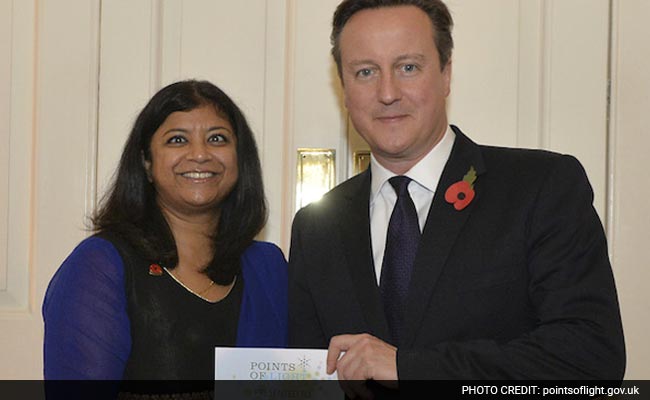
NEW DELHI (TIP): India and Britain reviewed bilateral economic ties on November 14, including plans for setting up an economic corridor linking hub Bangalore and India’s financial capital Mumbai, people familiar with the matter said. The two countries also discussed the importance of an India-European Union broad-based trade and investment agreement—the subject of negotiations since 2007. The discussions came up during talks between visiting British Prime MinisterDavid Cameron and his Indian host Prime Minister Manmohan Singh. Cameron is on a brief visit to India on his way to Colombo for the three-day Commonwealth Heads of Government Meeting (CHOGM) starting Friday. Cameron’s current visit is his second this year and third in three years. The British Prime Minister was in New Delhi in February with a large business delegation. Both the leaders were “happy at the progress that has been made; the terms of reference for the feasibility study of the BMEC (Bangalore-Mumbai Economic Corridor) have been finalized”, one of the people aware of the development cited earlier said.
The corridor is expected to be like the $90 billion (around Rs.5.7 trillion today) Delhi-Mumbai Industrial Corridor that India is building with Japanese help. It covers 1,483km and incorporates nine mega industrial zones of 200-250 sq. km, a high-speed freight line, three ports, and six airports. The aim of the project is to develop new industrial cities to expand India’s manufacturing and services base. Singh and Cameron also went over the progress in bilateral relations since the latter’s visit in February, a second person aware of the developments said. “Both leaders expressed satisfaction that despite the continuing global economic slowdown and the euro zone difficulties, India-UK trade ties have been resilient,” this person said. “Investments on both sides have also progressed satisfactorily. They felt that there was a need to take this process further through increased interaction in various fields, and regular steps and measures to continue this positive momentum.” Britain’s total foreign direct investment in India since April 2000 totals about $17.08 billion. Some 700 Indian companies have set up base in Britain, according to Indian foreign ministry figures. Other engagements of Cameron in New Delhi included a meeting with Indian business leaders. At the meeting, Cameron said he respected Singh’s decision to not participate in CHOGM in Sri Lanka, but added that he was in favour of participating in such multilateral events as it provided an opportunity to focus attention on issues like human rights. “I think the advantage of going to a multilateral organization is that you can help lead it. I think, actually, going to Sri Lanka will help to shine the light on some issues,” Cameron was cited as saying by PTI.
“I totally respect the decision (by Singh to not go)…it’s a decision that they have to make.” Singh decided on 10 November to not go for CHOGM due to pressure from Tamil parties in India who say Sri Lanka’s President Mahinda Rajapaksahas not done enough to re-integrate Sri Lanka’s Tamil minority into the national mainstream since the end of the nearly three-decade-old civil war in May 2009. Tamils in India, who share close cultural ties with Sri Lankan Tamils, are also upset with Sri Lanka’s majority Sinhala community for alleged atrocities committed during the last phases of the civil war. The ruling All India Anna Dravida Munnetra Kazhagam party in Tamil Nadu and the opposition Dravida Munnetra Kazhagam are demanding a complete boycott of CHOGM by India. The country is being represented at the meeting by foreign minister Salman Khurshid. In his comments to Indian businessmen, Cameron also said he was open to meeting Gujarat chief minister Narendra Modi, the prime ministerial candidate of India’s main opposition Bharatiya Janata Party. Modi was treated as a pariah by European nations, including Britain, due to his allegedly turning a blind eye to the communal riots in Gujarat that saw the deaths of an estimated 2,000 people, mostly Muslims, in 2002. Two British Muslims were among those killed in the riots, sparked allegedly by a Muslim mob setting fire to a train carriage carrying Hindu pilgrims.But in October last year, Britain announced it was ending a 10-year boycott of Modi, following which British High Commissioner to India James Bevanmet the Gujarat chief minister. Asked if he would like to meet Modi in the near future, Cameron said, “In time, yes. It’s good to meet. We have an approach of meeting all politicians and leaders. In the end, it will be for the people of India whom to elect. But I’m open to meeting elected leaders.”





Be the first to comment